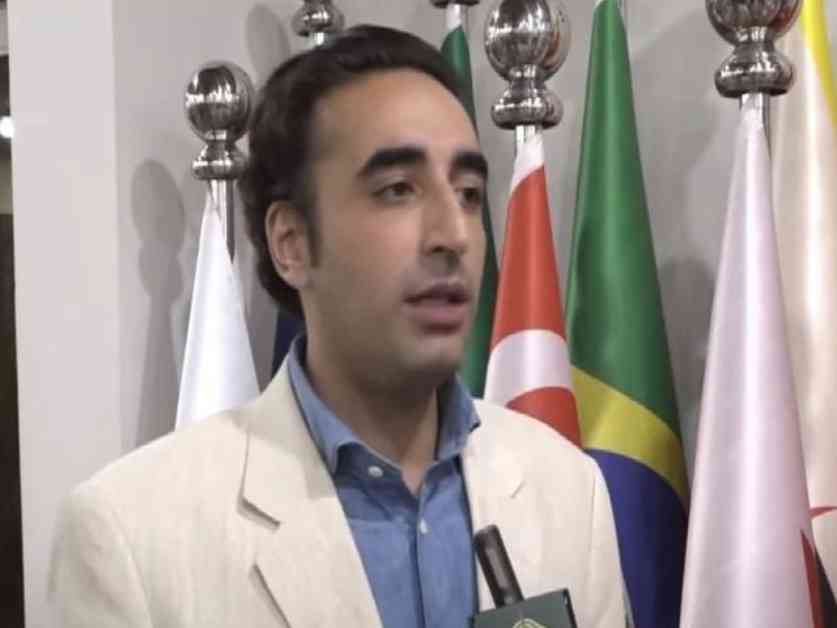Bilawal Slams Politicisation of Water as ‘Hybrid Warfare’
PPP Chairman Bilawal Bhutto-Zardari spoke out on Wednesday against the politicisation of water, describing it as a form of “hybrid warfare” that could lead to future generations fighting over water resources. This statement comes in the wake of recent tensions between Pakistan and India, with both countries agreeing to a ceasefire after a series of drone and missile exchanges.
Bilawal expressed concerns over India’s attempts to create a ‘new normal’ in cross-border conflicts, warning that this approach could jeopardize regional peace and stability, particularly between the two nuclear-armed nations. He criticized Indian Prime Minister Narendra Modi’s remarks about Operation Sindoor, stating that Pakistan had acted responsibly and with restraint in response to Indian aggression.
The PPP chief emphasized the importance of resolving key issues such as the Jammu and Kashmir dispute, cross-border terrorism, and India’s alleged weaponization of water resources for lasting peace in South Asia. He announced plans to lead a high-level delegation to world capitals to brief foreign governments, media, and parliaments on Pakistan’s stance and India’s recent actions.
Bilawal’s delegation includes Climate Minister Musadik Malik, who accused India of targeting civilians and spreading a false narrative of dominance. Former foreign minister Khurram Dastgir, also part of the delegation, criticized India’s behavior as anti-Muslim and anti-Pakistan, describing it as irresponsible and not reflective of a responsible state. The delegation aims to highlight the need for international attention to the escalating tensions between Pakistan and India.
As tensions continue to escalate between Pakistan and India, Bilawal’s strong stance against the politicization of water resources highlights the urgent need for diplomatic efforts to prevent further conflict in the region. The delegation’s upcoming visits to world capitals signify Pakistan’s commitment to raising awareness about India’s aggressive actions and advocating for peaceful resolutions to the longstanding issues between the two neighboring countries.
The situation remains complex and fragile, with both countries facing the risk of escalating tensions that could have far-reaching consequences for regional peace and stability. Bilawal’s leadership in addressing these critical issues underscores the importance of international cooperation and dialogue in preventing conflicts and promoting peace in South Asia.









